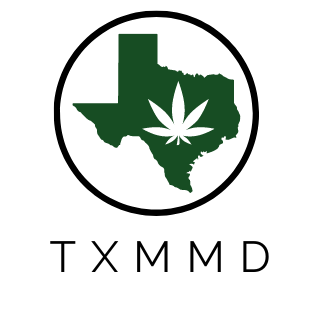
Post Traumatic Stress Disorder (PTSD)
Post-Traumatic Stress Disorder (PTSD) is a mental health condition that can develop after experiencing or witnessing a traumatic event, such as military combat, accidents, abuse, natural disasters, or other life-threatening situations.
Common symptoms include: Intrusive memories or flashbacks of the traumatic event, Nightmares or disturbed sleep, Severe anxiety or panic attacks, Avoidance behaviors, such as avoiding reminders of the trauma, Negative changes in mood and thinking, including depression, irritability, or difficulty feeling positive emotions, and Hyperarousal, including heightened startle response or difficulty concentrating.
PTSD can significantly affect daily functioning and quality of life if left untreated.
Medical marijuana may provide supportive relief for PTSD-related symptoms such as anxiety, sleep disturbances, hyperarousal, and mood issues, potentially improving quality of life when used responsibly under medical guidance.
Frequently Asked Questions
Can medical marijuana help with PTSD symptoms?
Post-Traumatic Stress Disorder (PTSD) is a mental health condition that can develop after experiencing or witnessing a traumatic event, such as military combat, accidents, abuse, natural disasters, or other life-threatening situations.
Common symptoms include: Intrusive memories or flashbacks of the traumatic event, Nightmares or disturbed sleep, Severe anxiety or panic attacks, Avoidance behaviors, such as avoiding reminders of the trauma, Negative changes in mood and thinking, including depression, irritability, or difficulty feeling positive emotions, and Hyperarousal, including heightened startle response or difficulty concentrating.
PTSD can significantly affect daily functioning and quality of life if left untreated.
Medical marijuana may provide supportive relief for PTSD-related symptoms such as anxiety, sleep disturbances, hyperarousal, and mood issues, potentially improving quality of life when used responsibly under medical guidance.
Is medical marijuana safe for people with PTSD?
Post-Traumatic Stress Disorder (PTSD) is a mental health condition that can develop after experiencing or witnessing a traumatic event, such as military combat, accidents, abuse, natural disasters, or other life-threatening situations.
Common symptoms include: Intrusive memories or flashbacks of the traumatic event, Nightmares or disturbed sleep, Severe anxiety or panic attacks, Avoidance behaviors, such as avoiding reminders of the trauma, Negative changes in mood and thinking, including depression, irritability, or difficulty feeling positive emotions, and Hyperarousal, including heightened startle response or difficulty concentrating.
PTSD can significantly affect daily functioning and quality of life if left untreated.
Medical marijuana may provide supportive relief for PTSD-related symptoms such as anxiety, sleep disturbances, hyperarousal, and mood issues, potentially improving quality of life when used responsibly under medical guidance.
Will medical marijuana interfere with my therapy or medications?
Post-Traumatic Stress Disorder (PTSD) is a mental health condition that can develop after experiencing or witnessing a traumatic event, such as military combat, accidents, abuse, natural disasters, or other life-threatening situations.
Common symptoms include: Intrusive memories or flashbacks of the traumatic event, Nightmares or disturbed sleep, Severe anxiety or panic attacks, Avoidance behaviors, such as avoiding reminders of the trauma, Negative changes in mood and thinking, including depression, irritability, or difficulty feeling positive emotions, and Hyperarousal, including heightened startle response or difficulty concentrating.
PTSD can significantly affect daily functioning and quality of life if left untreated.
Medical marijuana may provide supportive relief for PTSD-related symptoms such as anxiety, sleep disturbances, hyperarousal, and mood issues, potentially improving quality of life when used responsibly under medical guidance.
